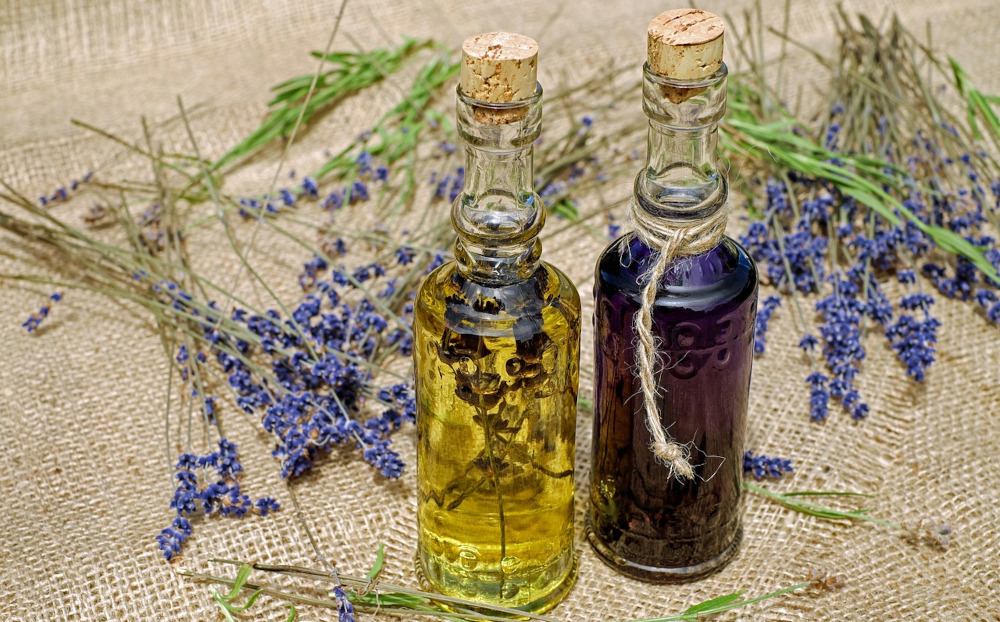Aromatherapy for Anxiety and Depression

Aromatherapy, the use of essential plant oils for mind and body healing, is quite effective for treating anxiety and depression. Studies have proven aromatherapy’s effectiveness, and scientists now understand why it is effective.
How Does Aromatherapy Affect Emotions?
The limbic system, the area of our brains that processes emotions, is tied to the brain’s olfactory bulbs, which processes smells. This is why pleasant smells can make us feel good and bad smells, conversely, can make us feel bad, angry even.
Aromas have the power to trigger both emotions and memories. Scientists have known this for many years now, and there are countless studies on the topic. But the ancients understood the benefits of using plant fragrances for treating the body and the mind thousands of years ago, particularly for melancholy (aka depression) and anxiety (caused by stress).
Using Essential Oils for Depression
Which essential oils you should choose to treat your anxiety and/or depression is determined by the underlying cause. For example, people suffering from Myalgic Encephalomyelitis (ME, also known as Chronic Fatigue Syndrome) are encouraged to treat their depression using many of the same essential oils one would choose to treat stress.
In The Complete Book of Essential Oils & Aromatherapy, ME sufferers are advised to use grapefruit, rose, tangerine and geranium. And they are all excellent for stress relief. Following are a few synergistic blends for the treatment of depression and anxiety. Each one is listed by causation and/or symptoms.
Synergistic Blend for Apathy / Helplessness
Grapefruit 15 drops
Rosemary 10 drops
Lavender 5 drops
2 TB of base oil*
Synergistic Blend for Depression / Guilt
Geranium 15 drops
Lavender 5 drops
Bergamot 10 drops
2 TB of base oil*
Synergistic Blend for Anxiety
Lavender 10 drops
Geranium 10 drops
Palmarosa 10 drops
2 TB base oil*
Synergistic Blends for General Stress
The following two stress blends each contain a different trio of plant essences. Which should you use? It depends on what you believe you need most. for example, Neroli oil, in addition to stress and depression, is useful for treating frigidity, insomnia, shock, stretch marks and making mature skin look younger. Meanwhile, Grapefruit oil, in addition to reducing stress and depression, disinfects and cleanses, stimulates the immune system, curbs sugar cravings and decreases fluid retention. So, keep these qualities in mind when choosing which blend to try first.
Stress Blend 1
Grapefruit 15 drops
Rosemary 11 drops
Palmarosa 5 drops
2 TB base oil*
Stress Blend 2
Neroli 7 drops
Lavender 3 drops
Lemon 20 drops
2 TB base oil*
* Suggested base oils: sweet almond, apricot, grapeseed, jojoba, and safflower.
How to Blend and Use Essential Oils
In an amber glass bottle, add the base oil and then the essential oils. Cap the bottle and gently swirl, to blend ingredients, for a minute or two. The amber glass will protect your synergistic blends from light and air, and the mixture will remain effective for up to three months.
You can use the oil blends either as a massage, in the bath, or both. However, massaging the oil into your head and neck may ensure a faster response to treatment. I have already written a post describing how to use essential oils in a bath, so I’ll keep it short and simply link to 'Aromatic Bath for Stress & Anxiety.'
If you have any questions or comments about aromatherapy or any of the oils recommended in this article, post it below and I’ll respond as quickly as possible. If any of these synergistic blends successfully treat your anxiety and/or depression, please, share your success story. We’d love to hear from you.
Love what you’re reading? Don’t miss out on future articles! Subscribe for updates on our latest posts and our bi-monthly newsletter.
Sign up now—no spam, just good vibes and holistic health insights delivered straight to your inbox!
Worwood, Valerie Ann. “The Complete Book of Essential Oils & Aromatherapy”. New World Library, 1991. Print
C. Coville. “6 Ways Your Sense of Smell Is Secretly Controlling Your Mind”. Cracked, September 11, 2011. Web. January 2017
Song, Cai and Leonard, Brian E. “The olfactory bulbectomised rat as a model of depression”. Neuroscience & Biobehavioral Reviews, Vol 29, Issue 4-5, 2005. Pages 627-647. Web. January 2017
Warrenburg, Stephen. “Effects of Fragrance on Emotions: Moods and Physiology”. Chemical Senses, Vol 30 No. Suppl. 1, Oxford University Press 2005. Web. November 2016
“Neroli Essential Oil”. Aroma Web, n.d. Web. January 2017
Axe, Josh, MD. “13 Grapefruit Essential Oil Benefits – Starting with Weight Loss”. Dr. Axe, n.d. Web. January 2017
